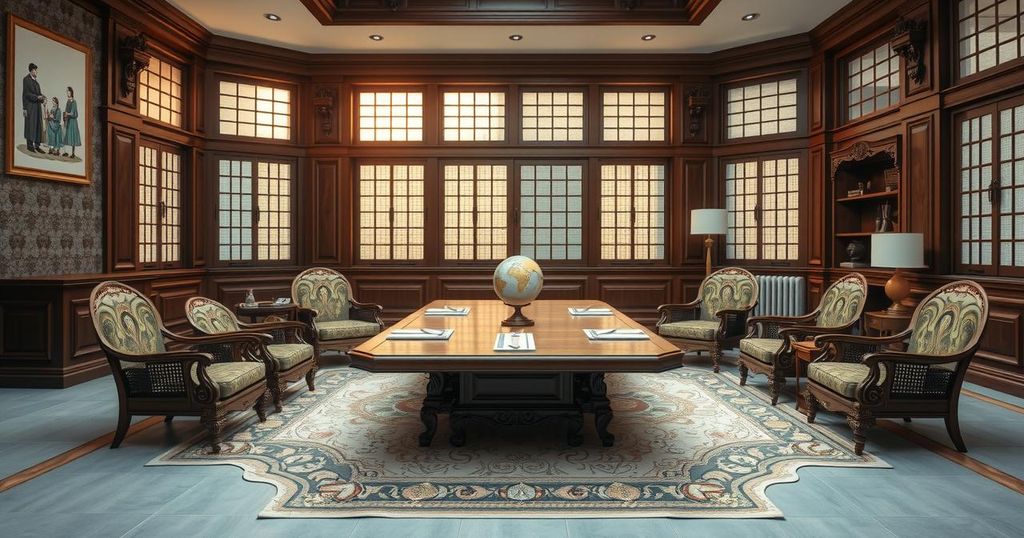Qatar’s Prime Minister Sheikh Mohammed bin Abdulrahman visited Beirut, engaging with new leaders following a two-year political impasse. His meetings with President Joseph Aoun and Prime Minister Nawaf Salam signal a potential revival of Gulf engagement with Lebanon, amidst shifting dynamics regarding Hezbollah’s influence.
On Tuesday, Qatar’s Prime Minister Sheikh Mohammed bin Abdulrahman visited Beirut to engage with senior Lebanese officials, marking the highest-level visit from Doha since the election of President Joseph Aoun last month. His arrival signifies growing hopes for renewed engagement between the Gulf Cooperation Council (GCC) and Lebanon following a two-year political stalemate that concluded with Aoun’s election and the pending formation of a government under Prime Minister Nawaf Salam.
The Qatari Prime Minister’s discussions include meetings with both President Aoun and Prime Minister Salam, along with outgoing caretaker Prime Minister Najib Mikati. Notably, Aoun and Salam are viewed as representatives of a new political approach, distinct from the traditional ruling elite often criticized for Lebanon’s ongoing crises. Historically, Qatar has played a supportive role in Lebanon, particularly evident after the 2006 war between Israel and Hezbollah.
Qatar’s involvement has evolved, as the nation participated in a five-nation initiative aimed at bridging Lebanon’s leadership vacuum. In recent months, several senior Gulf officials have traveled to Lebanon amid shifting dynamics, as Gulf nations reassess their financial support in response to reduced Hezbollah influence following Israeli military actions targeting its command structure. This renewed interest is underscored by recent visits from other prominent Gulf leaders.
The recent visit of the Qatari Prime Minister to Lebanon is significant in light of the strategic shifts in the region. Following the election of President Joseph Aoun, the backdrop is characterized by a two-year leadership gap and a desire for international support to stabilize Lebanon amidst economic and political turmoil. The influence of Iran-backed Hezbollah has historically deterred Gulf nations from engaging with Lebanon, but recent military actions have altered this perception, prompting renewed diplomatic relations.
In summary, the arrival of Qatar’s Prime Minister in Beirut marks a pivotal moment for Lebanon, reflecting the potential for improved relations between the Gulf states and Lebanon’s new political leadership. The focus on engaging with leaders who represent change from the political status quo signifies a possible transformation in Lebanon’s governance and international support amidst ongoing challenges. The GCC’s renewed interest presents an opportunity for Lebanon to strengthen ties and attract necessary support.
Original Source: www.thenationalnews.com






